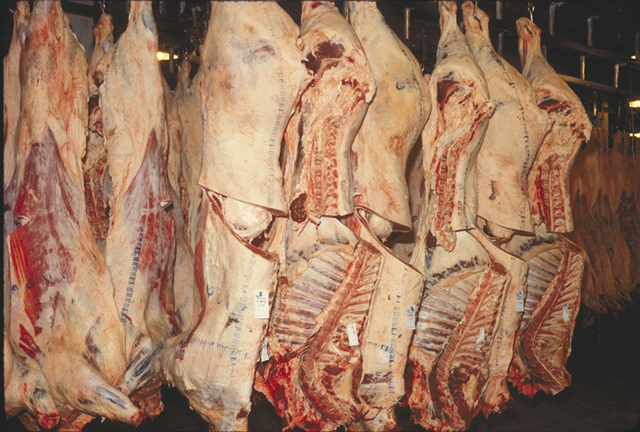
The debate over climate change has reached a rarefied level of policy abstraction in recent months. Carbon tax or cap-and-trade? Upstream or downstream? Should we auction permits? Head-scratching is, at this point, permitted. But at base, these policies aim to do a simple thing, in a simple way: persuade us to undertake fewer activities that are bad for the atmosphere by making those activities more expensive. Driving an SUV would become pricier. So would heating a giant house with coal and buying electricity from an inefficient power plant. But there's one activity that's not on the list and should be: eating a hamburger.Read the whole thing, you'll be glad you did.
If it's any consolation, I didn't like writing that sentence any more than you liked reading it. But the evidence is strong. It's not simply that meat is a contributor to global warming; it's that it is a huge contributor. Larger, by a significant margin, than the global transportation sector...
(skip)
...It's also worth saying that this is not a call for asceticism. It's not a value judgment on anyone's choices. Going vegetarian might not be as effective as going vegan, but it's better than eating meat, and eating meat less is better than eating meat more. It would be a whole lot better for the planet if everyone eliminated one meat meal a week than if a small core of die-hards developed perfectly virtuous diets.
I've not had the willpower to eliminate bacon from my life entirely, and so I eliminated it from breakfast and lunch, and when that grew easier, pulled back further to allow myself five meat-based meals a month. And believe me, I enjoy the hell out of those five meals. But if we're going to take global warming seriously, if we're going to make crude oil more expensive and tank-size cars less practical, there's no reason to ignore the impact of what we put on our plates.
Photo credit: USDA via Wikimedia
No comments:
Post a Comment